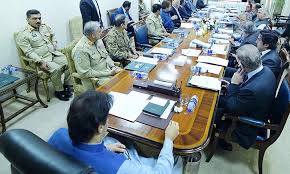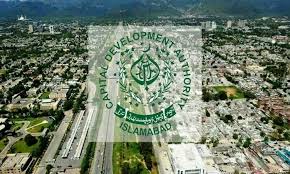Security and development in Balochistan: Existing dynamic and way ahead

Islamabad: The Islamabad Policy Research Institute organized a special webinar under its National Dialogue Series on “Security and Development in Balochistan: Existing Dynamics and Way Ahead” here in the capital Thursday.
Eminent speakers included Lt. General (R) Nasser Khan Janjua, Former National Security Advisor and Southern Command Commander; Mr Jan Jamali, Former Chief Minister Balochistan; Mr Rafiullah Kakar, a development and policy expert from Balochistan; and Dr Farhan Hanif Siddiqi, Director at School of Politics and International Relations, Quaid-i-Azam University, Islamabad.
In his Opening Address Acting President IPRI, Brigadier (R) Raashid Wali Janjua flagged the attention of panelists towards multidimensional nature of Baloch grievances, focusing on human security imperatives and their linkage with overall security and development of the province. Without a healthy symbiosis between state’s security efforts and province’s development needs with a people-centric focus, peace and development would remain an elusive goal.
Delivering his Keynote Address titled “Reflections on Balochistan Issue”, Lt. General (R) Nasser Khan Janjua, Former National Security Advisor, highlighted that Balochistan is gifted in terms of its geostrategic location as well as being a well-spring of natural resources which if fully utilized could be a catalyst for the entire region.
He lamented that since the inception of the state of Pakistan, these unique attributes have made Balochistan a target for Pakistan’s adversaries, being aggressively used as a front by both internal as well as external rogue elements to destabilize the country. He stressed that visible and real improvement in the Balochistan situation can only come about not by imposing force, but by ruling the hearts and minds of the people through love and accommodation.
He acknowledged that the initial fault lay in failure to integrate Balochistan. However, he asserted that it was not only the state’s failure to integrate Balochistan, but also the failure of sections in Balochistan to get integrated.
The root cause of insurgency, he said, was sub-nationalism. He highlighted that to control insurgency, “a people-centric civil-military strategy was formulated which helped Balochistan transition from flag burning to flag raising.” Balochistan, Lt. Gen. Janjua said, has the greatest potential in fisheries, agriculture, wind & solar energy, and vast mineral wealth. It has close to USD 50 trillion worth of resources. Balochistan has the potential to become a massive trading hub of Asia. Asia was becoming an economic giant and Balochistan has a pivotal role to play amid this scenario, he said. “Balochistan needs special focus of think tanks and academia since the province needs all the support it can get,” he urged.
Mr Jan Jamali, Member Provincial Assembly of Balochistan, Chief Organizer Balochistan Awami Party, and former Chief Minister Balochistan spoke about the external threats facing Balochistan. He opined that Balochistan is stuck in the Great Game of the 21st Century with India and the United States having their interests in the region which do not coincide with the interests of the people of Balochistan. He advised that we not only need to play this Great Game but also win it. He added that the Baloch people need to be given respect and their just and equitable rights. Mr Jamali stressed that Islamabad needs to understand the Baloch way of life and their culture and traditions. “There is a need to build trust and to develop and enhance the capacity of the Baloch people so that they can be responsible for managing their own resources. It is essential to create opportunities for the young generation.”
Providing a “Review of CPEC: Impact on Balochistan”, Mr Rafiullah Kakar, a development and policy expert from Balochistan, shared that the China Pakistan Economic Corridor (CPEC) can be game changer for Pakistan and Balochistan. But outlined that Baloch people have grievances regarding CPEC given the minuscule share of the province in terms of CPEC projects and funding outlay.
He said Baloch people continue to have concerns about the project since several infrastructure projects that were part of CPEC remained unfinished. Mr Kakar asserted that despite partial successes, sectarian and militant groups continue to launch brutal attacks every now and then. Similarly, a low-level Baloch insurgency lingers on. He recommended that restoration of durable peace in the province requires a holistic but differentiated strategy, and called for a constitutional amendment to be introduced to enhance the powers of Senate and replace the current method of indirect election with direct elections.
“Pakistan’s current majoritarian federal design makes Balochistan the least rewarding political constituency for political parties seeking to come to power at the federal level. It offers little or no incentive to these parties to care about the province. A directly elected and powerful Senate is likely to incentivise state-wide parties to take a serious interest in Balochistan. This will, in turn, induce more political competition and bring technical expertise and experience to the province. Besides, enhanced powers will give provinces like Balochistan more say in decision-making at the federal level,” he recommended.
Mr Sanaullah Baloch, Member Provincial Assembly of Balochistan and Member Central Committee of Balochistan National Party-Mengal (BNP-M) discussed how Balochistan’s development landscape is worsening day by day, leading to more despair and distress. A province that suffers from multiple crises is no way politically and economically equipped for a positive takeoff. He warned that Balochistan might see a relapse into violence due to feelings deprivation amongst a large cohort of young educated population. The feeling can be assuaged if the people are provided health and education opportunities on the same lines as the other provinces.
Regarding CPEC, he said that the potential of this mega project ought to be realized as a way to win the hearts and minds of the common Baloch as this might be the last chance to straighten things out in the right direction.. Mr Baloch also stressed the need for non-interference in the province’s political representation process and the formulation of a long-term development strategy based on long-term allocation of commensurate funding to reduce the development gap between Balochistan and the rest of Pakistan.
Dr Farhan Hanif Siddiqi, Director and Associate Professor, School of Politics and International Relations, Quaid-i-Azam University, in his talk on “Governance Reforms: Political Empowerment of People,” highlighted that it is unfortunate that good governance has always eluded Balochistan. Governments have not only failed to make good on their promises, but also weren’t able to restore confidence in protecting the lives of the inhabitants of the province.
The politics of this area has always been dominated by tribal lords, local chiefs who have always used the funds from the federation to consolidate their power and wealth. With no real devolution of power and efficient local government structure, the Baloch are yet to taste the true meaning of democracy – having actual representatives from their community or stratum. History is replete with instances where these powerful chiefs blackmailed the government in the centre to become part of coalitions in exchange for hefty incentives and powerful positions in both the federal and provincial cabinets. These political goliaths of the governmental edifice were never concerned about the large underprivileged Baloch populace – several of these “respectable” tribal chiefs have been involved themselves in criminal activities in the province and still members of the Balochistan Assembly highlighting the blatant irony here.
In his Closing Address, Brig. (R) Raashid Wali Janjua, Acting President, IPRI, shared that Balochistan was the largest province of Pakistan with tremendous strategic and resource potential. A largely unexplored mineral rich province with a large coastal belt holds tremendous promise for national development as well as strategic connectivity, with regional countries through land and sea routes. The province, however, has seen a recrudescence of violence in the recent past beside some political undercurrents of dissatisfaction due to varying reasons. The external factors in fermenting unrest in the province and shifting focus away from development activities and human security has been discussed and highlighted at different fora. He explained that the webinar is an attempt to analyse the reasons behind the recent acts of violence and factors inhibiting the national efforts to actualize the full development potential of the province. Brig. Janjua highlighted that there has been less focus on human security while framing the parameters of security debate on the Balochistan issue in the past. The human security concept that espouses the safety of humans from hunger, disease, joblessness and poverty should form the basis of any political discourse on Balochistan’s current talks.
“The uncertain security situation has significantly diminished prospects of foreign investment and resource exploration of our mineral and energy rich province. There is no doubt that due to the remoteness of geography and low population the cost of service delivery is very high in Balochistan. But the will to deliver can certainly overcome all the barriers. People-centric, equitable development and inclusive polity is, therefore, the scarlet thread that would bind the state in human security into a symbiotic relationship of the welfare and prosperity of Balochistan as well as the federation, he concluded.





